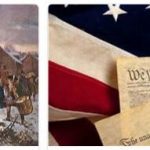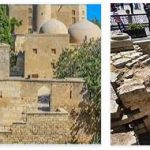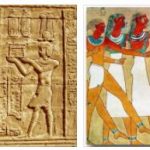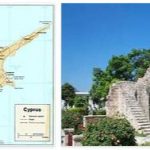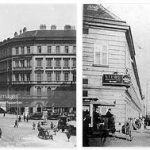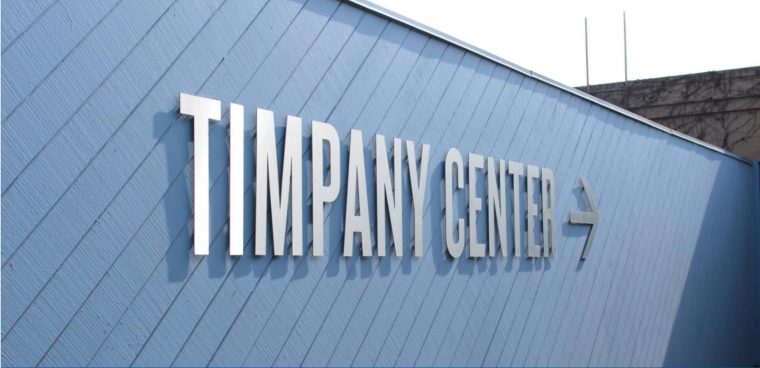Difficult democratization process
Now the way was clear for a »democratization and reconciliation process«. In 1990 there were free elections, from which Violeta Barrios de Chamorro, the candidate of the Unión Nacional Opositora (UNO), surprisingly emerged as the winner. Your government began work in April 1990 and began in May to disarm the Contra rebels and to settle them with their families in 20 “development zones”. Chamorro involved both the Contras and the Sandinista in government and tried to find a balance. Nevertheless, there were armed clashes between former Contras (»Recontras«) and their former Sandinista opponents (»Recompas«) in 1991/92, which led to the intervention of the army under Humberto Ortega Saavedra provoked. He had to resign after popular protests. Despite the unstable political situation and the most difficult economic conditions, Chamorro gradually pacified the country. The political climate was shaped by a strong fragmentation of the party landscape.
Alemán Lacayo (PLC) won the presidential elections in October 1996. He took office in January 1997. In 1999 Nicaragua became a full member of the Rio Group. The neoliberal economic policy and the growing corruption within the government and state institutions intensified the social differences. At the same time, relations with neighboring countries deteriorated (border disputes with Honduras, customs disputes with Panama and Honduras, conflicts over illegal immigration from Nicaragua to Costa Rica). The dissatisfaction of the population with the government meant that the Sandinista were able to strengthen their position in the local elections in 2000. In the presidential elections in November 2001, in which Alemán Lacayo did not run, won E. Bolaños Geyer (took office 10.1.2002; PLC), in the parliamentary elections of the PLC that were held at the same time. The internally divided partyinitially appointed Alemán Lacayo President of Parliament. In September 2002 he was removed from office, and in December 2002 parliament finally lifted his immunity by a narrow majority. As a result, Alemán Lacayo was sentenced in December 2003 to 20 years in prison for corruption, money laundering and election fraud. After several failed amnesty requests, the PLC members loyal to him increasingly blocked parliamentary decisions. The fight that Bolaños Geyer who had announced corruption, met approval in many other places. Economic and political reforms were dragged off by the power struggles in parliament, while the high level of poverty among the population increased – especially as a result of global coffee overproduction. The sharp decline in sales of Central American coffee deprived large parts of the population of the only source of income. For thousands of Nicaraguans, temporary migration to Costa Rica remained the only way out of the social misery. On May 28, 2004, the Central American Free Trade Agreement (CAFTA; Central American Free Trade Area) negotiated in 2003 was signed between the Central American states and the USA.
Ortega rule
According to usaers, presidential and parliamentary elections took place on November 5, 2006. Daniel Ortega succeeded in regaining the office of president. He was able to prevail with around 38% of the votes against Eduardo Montealegre (* 1955) from the Alianza Liberal Nicaragüense (ALN). The FSLN won the parliamentary elections and entered the parliament with 38 MPs. Ortega took office on January 10, 2007. To further strengthen the influence of the FSLN, Ortega lednationwide citizens’ councils (»Consejos del Poder Ciudadano«, abbreviated to CPC). Domestically, he put the emphasis on social measures, in terms of foreign policy he intensified relations with Cuba and Venezuela. After the local elections on November 9, 2008, which were accompanied by irregularities and which were clearly won by the candidates of the FSLN according to the government, protests by the opposition broke out. In 2009, the Supreme Court overturned Alemán Lacayo’s conviction. In a further decision in the same year, the judges declared the constitutional articles prohibiting the re-election of the president at Ortega’s request to be inapplicable, thereby allowing him to run for a further term.
In the presidential elections on November 6, 2011, which were accompanied by numerous irregularities, Ortega prevailed against his competitors with around 62.5% of the votes. The FSLN achieved a constitution-changing majority with 63 seats in the parliamentary elections that were held at the same time. After being sworn in on 10.1.2012, Ortega continued to strive to expand his political power. His wife, the poet Rosario Murillo (* 1951) also practiced, as a coordinator for public relations and citizens’ councils, exerted considerable influence. In July 2012, the parliament passed the resolution to build a canal between the Atlantic and Pacific (“Nicaragua Canal”), and a corresponding concession for the project was awarded to a Chinese consortium in the following year. Opponents of the construction project complained about the lack of transparency, the threat to indigenous land rights and the danger of the destruction of Lake Nicaragua. The concession expired in 2019 without construction work on the canal having started. A constitutional revision passed by parliament in January 2014 enabled the president to be re-elected indefinitely. In foreign policy, border disputes strained bilateral relations with Costa Rica and Colombia.
Before the parliamentary and presidential elections in 2016, Ortega nominated his wife as a candidate for the office of vice-president. From these elections on November 6th, 2016 he emerged as the clear winner with around 72.4% of the votes. The FSLN expanded its dominant position in parliament by winning 70 seats.
In May 2020, the Ortega government released around 2,800 prisoners into house arrest. 90 political prisoners were excluded. These were captured in the course of protests against government policies in April 2018. Over 320 people were killed and over 2,000 injured in demonstrations against social reform, which were suppressed by the police, according to Amnesty International. Hundreds were arrested. In June 2019, 600 political prisoners were released after the National Assembly passed an amnesty law.
In May 2020, the EU and USA imposed sanctions (entry bans, asset freezes) against state security officials who were responsible for the serious human rights violations at the 2018 demonstrations.

